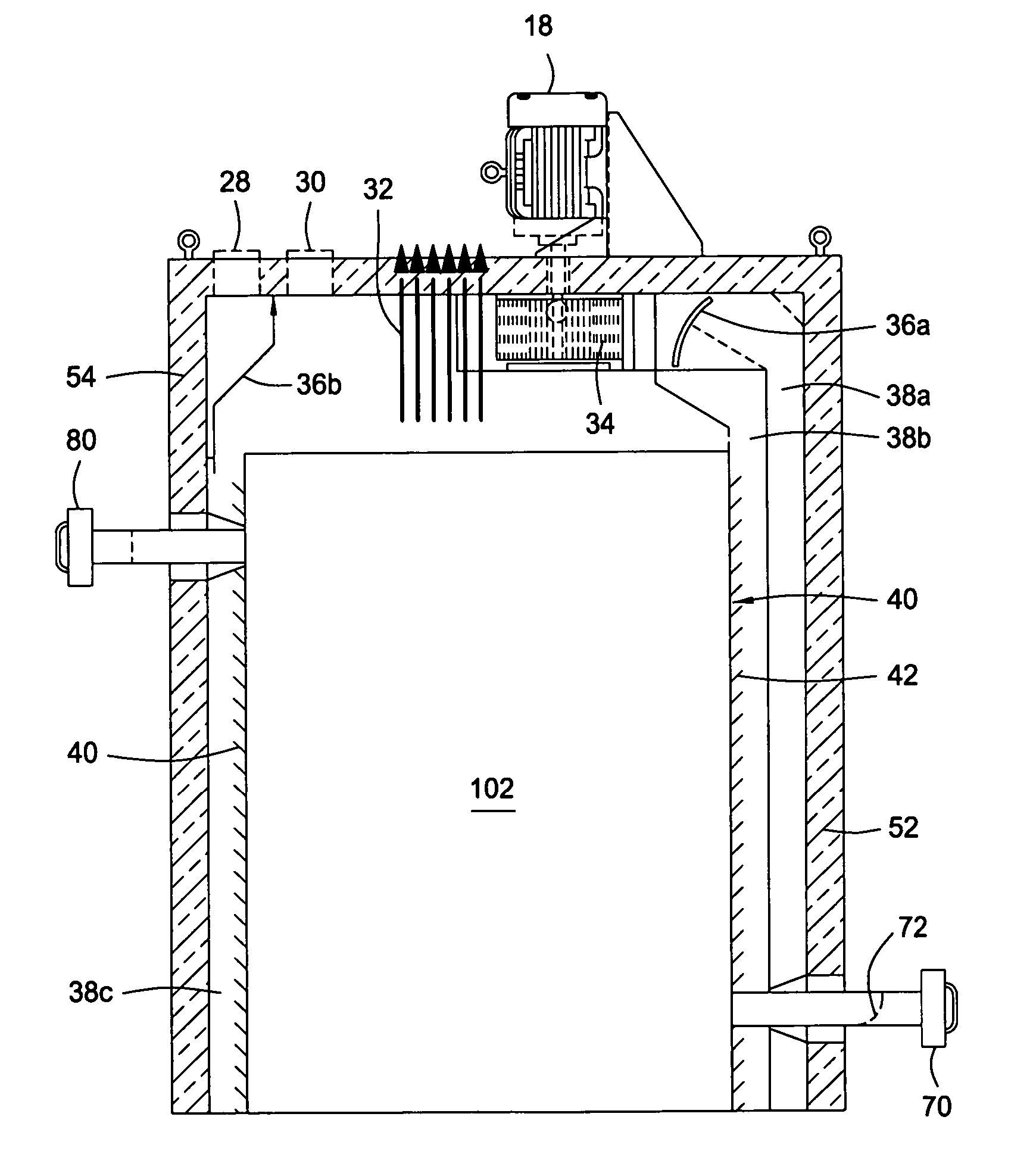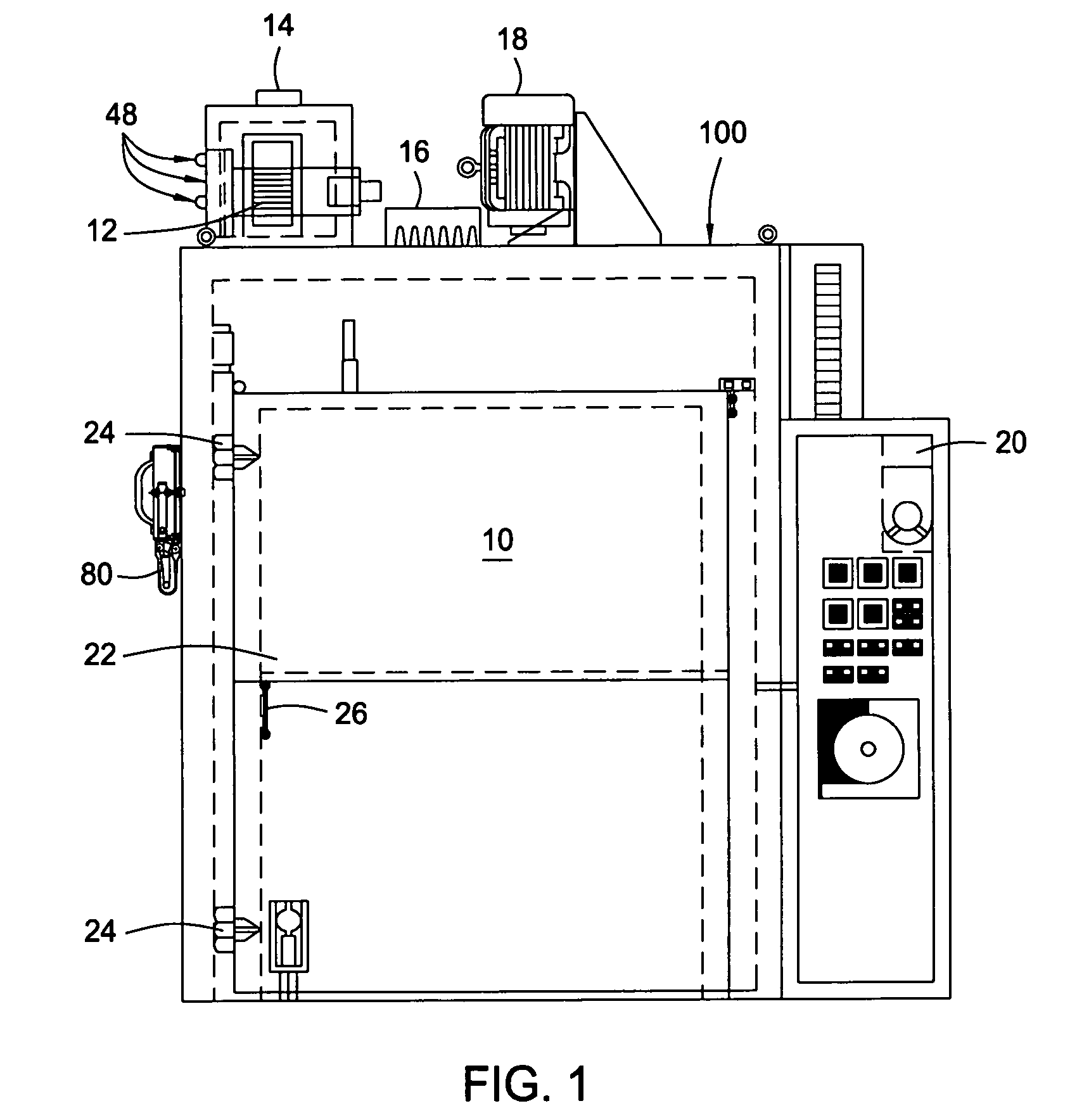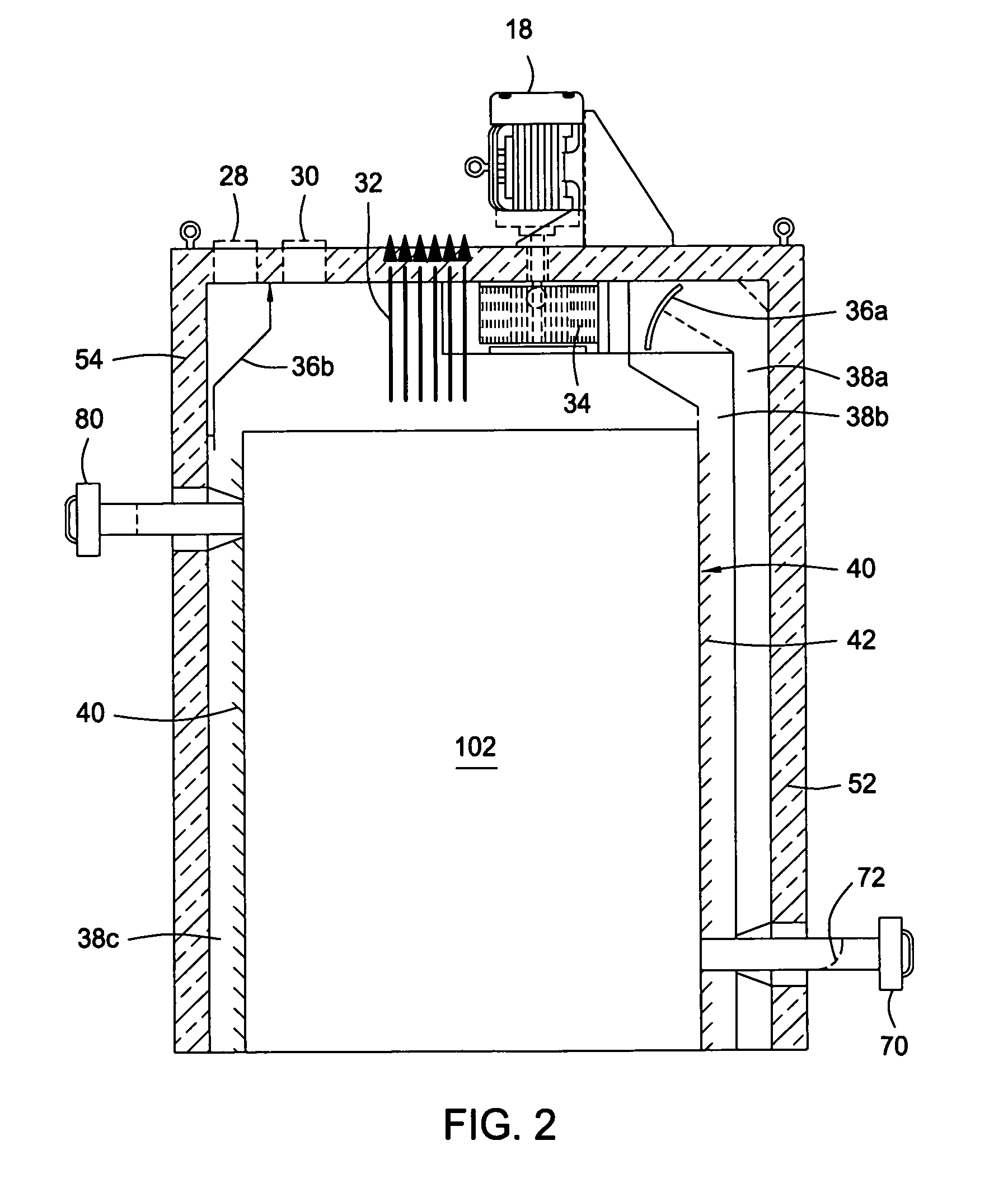Dry heat convection sterilization system
a technology of sterilization system and dry heat convection, which is applied in the direction of disinfection, lavatory sanitory, anti-microbial ingredients, etc., can solve the problems of high initial cost, high operating cost, and high maintenance cost of steam autoclaves
- Summary
- Abstract
- Description
- Claims
- Application Information
AI Technical Summary
Problems solved by technology
Method used
Image
Examples
Embodiment Construction
[0018] The invention will now be described with reference to the drawing figures, in which like reference numerals refer to like parts throughout. An embodiment in accordance with the present invention provides a sterilization system utilizing dry heat convection. The sterilizer having a housing and a number of plenums to guide the flow of hot air. Hot air is forced to flow though the plenums, an intake slide duct and into the bottom of a container being sterilized. The hot air will rise and exit from the top of the container through an exhaust slide duct. Furthermore, the external surfaces of the container are also sterilized through the use of a semi-pierced duct wall with adjustable diffuser panels. Hot air will re-circulate until it reaches a pre-determined temperature. The container and its contents can be safely handled once an exhaust air blower removes hot air from the system.
[0019]FIG. 1 is a front view illustrating a sterilization system 10 according to an embodiment of t...
PUM
| Property | Measurement | Unit |
|---|---|---|
| atmospheric pressure | aaaaa | aaaaa |
| temperature | aaaaa | aaaaa |
| temperature | aaaaa | aaaaa |
Abstract
Description
Claims
Application Information
 Login to View More
Login to View More - R&D
- Intellectual Property
- Life Sciences
- Materials
- Tech Scout
- Unparalleled Data Quality
- Higher Quality Content
- 60% Fewer Hallucinations
Browse by: Latest US Patents, China's latest patents, Technical Efficacy Thesaurus, Application Domain, Technology Topic, Popular Technical Reports.
© 2025 PatSnap. All rights reserved.Legal|Privacy policy|Modern Slavery Act Transparency Statement|Sitemap|About US| Contact US: help@patsnap.com



